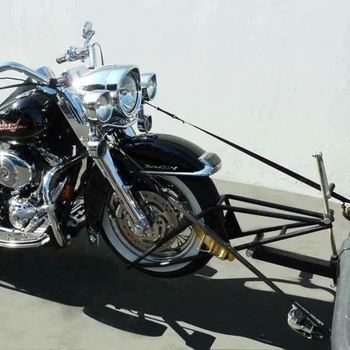
For every motorcycle, oiling the engine is very important for the proper functioning of the engine. We are well aware that when it comes to the performance of the bike, compromising on the quality of engine oil is like decreasing the performance and life of your bike. Engine oil keeps the engine running smoothly by keeping the pipes clean and well-lubricated.
Table Of Contents:
Although motorcycle manufacturers recommend a specific type of engine oil, it becomes a bit of a challenging task to select the best engine oil for your bike if you are looking for other available brands in the market. Remember, choosing the engine oil well suited for your motorcycle based on its displacement/cc has a significant effect on its performance. In this blog, we have compiled the list of best engine oils for 125cc, 100cc, 150cc, 200cc, and 250cc bikes.
Before going further, let’s have a quick reading of what are the actual benefits of engine oil for your motorcycle, the types of available engine oils and their difference, and, bike engine oil grades meaning.
Benefits of engine oil on motorcycles
The basic need of engine oil is to increase the longevity of your motorcycle engine. To prevent wear and tear of engine parts, it is very important to reduce the friction and heating levels between various components. Engine oil maintains lubrication as it flows to all engine parts, which in turn ensures the smooth running of the engine parts.
When the motorcycle engine parts have been working for a long period of time, deposits of carbon are formed. Engine oil basically has two components, one is the base oil that keeps the engine parts well lubricated and the other is additive than cleans any such carbon deposits.
Engine oil creates a thin, lubricating film between moving parts to minimize direct metal-to-metal contact. This reduces wear and tear, heat generation, and energy loss due to friction. Additionally, as the oil circulates through the engine, it carries away dirt, debris, and metal particles to the oil filter, where they are trapped. This process keeps the engine clean and functioning efficiently.
Timely filling and replacing the engine oil reduces your motorcycle’s vibrations, keeps the engine cool, and overall, increases the efficiency and performance of your bike by keeping the engine working properly.
Main functions of engine oil
Lubrication - The primary function of engine oil is to lubricate the moving parts of the engine, reducing friction and wear. This ensures smoother operation and extends the life of the engine components.
Cooling - Engine oil helps to dissipate heat away from the combustion cycle. While the main cooling is done by air or liquid coolants, oil aids in reducing the overall temperature by absorbing heat from the engine parts it comes in contact with.
Cleaning - Modern engine oils contain detergents and dispersants that help clean the engine by removing deposits, sludge, and dirt, keeping the engine parts clean for efficient operation.
Protection Against Corrosion - Engine oil contains additives that protect the engine's internal surfaces from corrosion and rust, which can be caused by moisture and combustion by-products.
Sealing - It enhances the sealing of piston rings to the cylinder walls, leading to better compression and efficiency of the engine.
Motorcycle engine oil types
Mineral or conventional engine oil
This oil is best suited for commuter motorcycles which operate at lower speeds and normal conditions as it does not have any complex chemical compound additives. The use of mineral engine oil is not recommended for high-performance bikes. Extracted as crude oil from the ground, mineral oil is further refined and well-blended with certain chemical additives.
Full synthetic engine oil
This oil is best recommended for high-performance bikes as it has excellent heat resistance properties and a high level of lubrication. 100% or fully synthetic oils do not have any mineral or crude oil, instead, these are made synthetically from scratch and have fully synthetic additives. These oils are known to have higher oxidation resistance, lubrication, and pressure resistance.
The performance of a bike is further increased as fully synthetic oils reduce the engine drag and prevent the building up of sludge. They also have high viscosity and work well in an extremely cold or hot climate. 100% synthetic oils are pretty much costly.
Semi-synthetic or synthetic blend engine oil
Semi-synthetic oils are a blend of mineral oils and synthetic oils with some other additives. This oil delivers the best of both compositions and is well recommended for those who ride in low-temperature conditions and want an added level of protection against oxidation.
The level of synthetic oil in the semi-synthetic oil can vary, be it 90% synthetic or even 10% synthetic, which decides the cost of the oil. This oil is most popular for riders who want to extract good performance from their bike without having to pay more for 100% synthetic oil. Before buying semi-synthetic engine oil, remember to check the composition of synthetic oil in the composition.
Criteria to Know Before Buying Engine Oil for a Motorcycle
Engine Type: Know whether your motorcycle has a 2-stroke or a 4-stroke engine, as each type requires different oil.
Manufacturer’s Recommendations: Always check the motorcycle manufacturer’s guidelines for the recommended oil type, viscosity, and specifications. Using the wrong oil can affect performance and may void warranties.
Oil Type: Decide between mineral, semi-synthetic, or fully synthetic oil based on your engine's requirements, your riding style, and your budget. Synthetic oils generally offer better performance and protection, especially under extreme conditions.
Viscosity: This refers to the oil's thickness or flow characteristics at different temperatures. The right viscosity ensures the oil can protect the engine across the temperatures it operates in.
API and JASO Standards: Look for oils that meet or exceed the specific American Petroleum Institute (API) and Japanese Automotive Standards Organization (JASO) requirements for motorcycles. These standards ensure the oil meets certain performance and quality criteria.
Motorcycle engine oil grades
You may have often seen engine oil grade labeled as 10W 30 oil or 20W 40 oil. What is the actual meaning of these engine oil grades? It becomes very important to know the engine oil grade or motor oil viscosity rating when it comes to buying the best engine oil for your bike.
Engine oil grade is denoted as XW-XX, where X represents a number and W means weight. The X preceding W represents the viscosity or rate of oil flow at 0 degrees Fahrenheit or -17.8 degrees Celsius. This means the lower the value of X, the higher the resistance to thinning of oil at a lower temperature. For example, 5W-20 engine oil will less thicken than 10W-20 in cold weather.
The digits after W denote the viscosity of engine oil at 100 degrees Celsius or 212 degrees Fahrenheit. This means 5W-20 will thin out more quickly than 10W-20 grade engine oil.
Higher numbers mean thicker oil. Thicker oils are better at maintaining film strength to protect the engine at high temperatures but may cause increased resistance in cold weather. Conversely, thinner oils flow more easily at low temperatures, improving cold starts but may not offer sufficient protection at high temperatures.
Now, we will discuss the best engine oil for 125 cc, 150 cc, 200 cc, and 250 cc bikes.
Best engine oil for 100cc, 125cc & 150cc bikes
10W-30
This grade of oil is most recommended for 100cc, 125cc and 150cc commuter bikes in normal environmental conditions and short journies
10W-40
For long trips and hot weather conditions, it’s advisable to use this grade of oil for better protection of the 125 cc - 150 cc bike engines
20W-40
Comparatively, it offers smoother bike performance and is recommended for mostly 150 cc bikes
Shell Advance AX7 10W-40 synthetic-based motorcycle engine oil
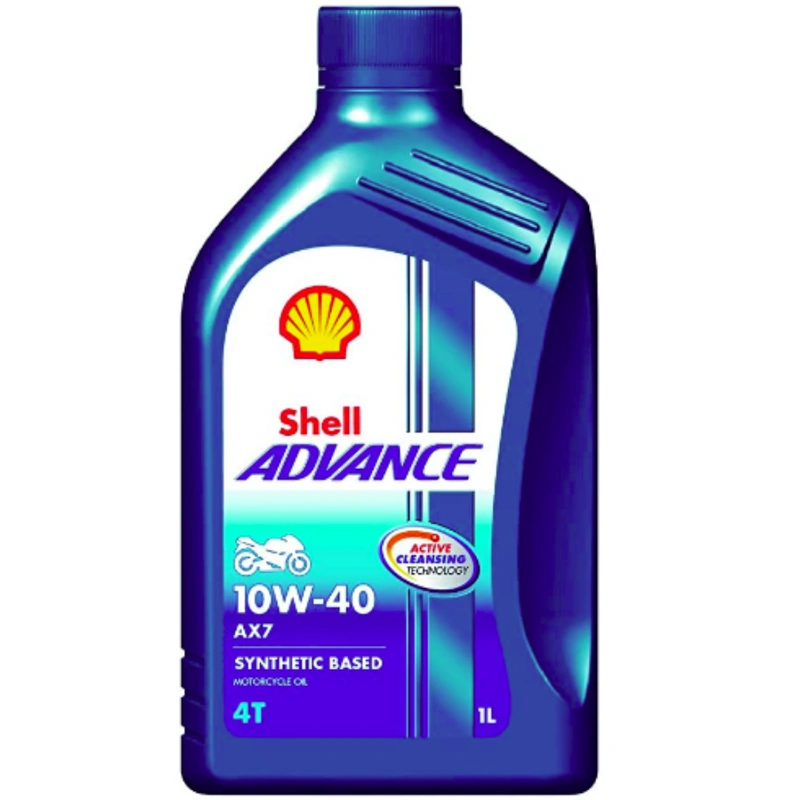
Rating & Reviews (4.3/5, 1854 rating)
User reviews: "It's a very good product, my bike noise is reduced, gear smoothly working, mileage increased, highly recommended"
Motul 3000 4T 10W-30 mineral engine oil
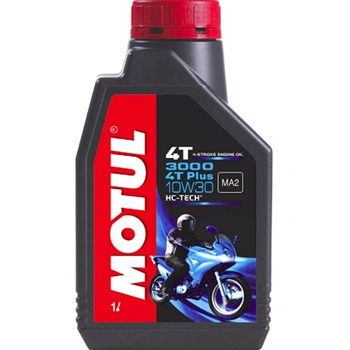
Rating & Reviews (4.3/5, 169 ratings)
User reviews: "Just replaced old engine oil with this and I can confirm my puny CT100 has become super smooth! It's too short a time to check mileage though. Shall update shortly on this."
Castrol Power1 4T 10W-30 engine oil
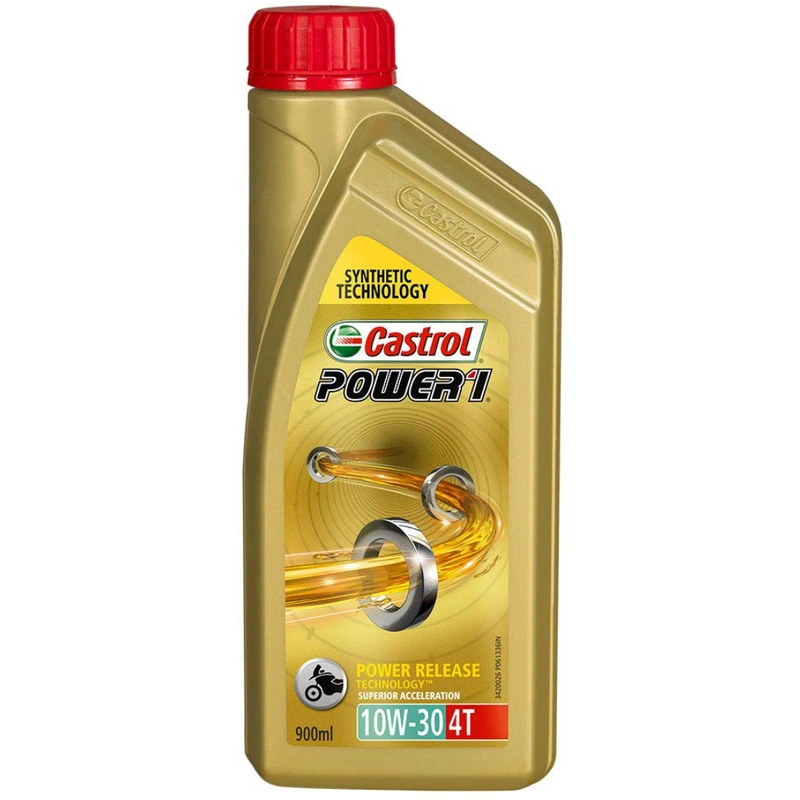
Rating & Reviews (4.3, 470 ratings)
User reviews: "Castrol is a trusted brand in engine oil that keep the engine runs good and smooth. For many years I use castrol engine oil for my bikes.. that's keep it's running .thanks amazon for quick delivery and good product."
Liqui Moly 10W40 Street Synthetic Technology Engine Oil
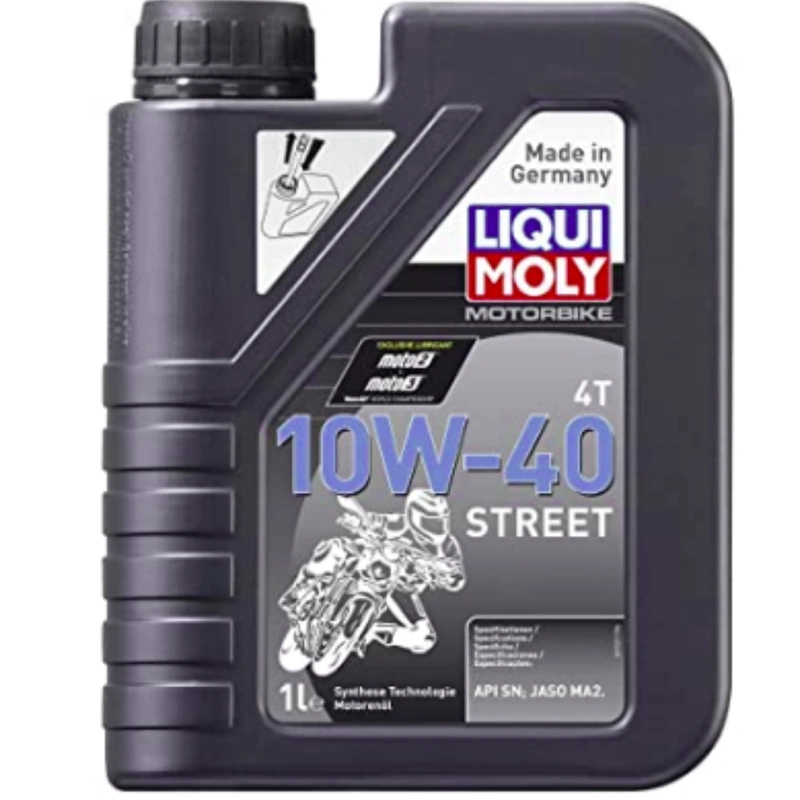
Rating & Reviews (4.5/5, 82 reviews)
User reviews: "OMG this product is at another level... For my R15 v3. First 50 kms after using this was very aggressive... Engine was roaring like real beast and performance was at high peak.... In later course it became more refine and and stable for engine... With less vibration"
Best engine oil for 200 cc bikes
RS200, KTM Duke 200 & more) and 250 cc bikes (Bajaj Dominar 250, KTM DUKE 250)
20W-50
This oil grade is mostly used in 200 cc - 250 cc bikes and work well in hot and humid conditions.
10W-50
Comparatively to 20W-50, 10W-50 thickens less in cold weather conditions
Motul 3100 4T Gold Semi-Synthetic engine oil
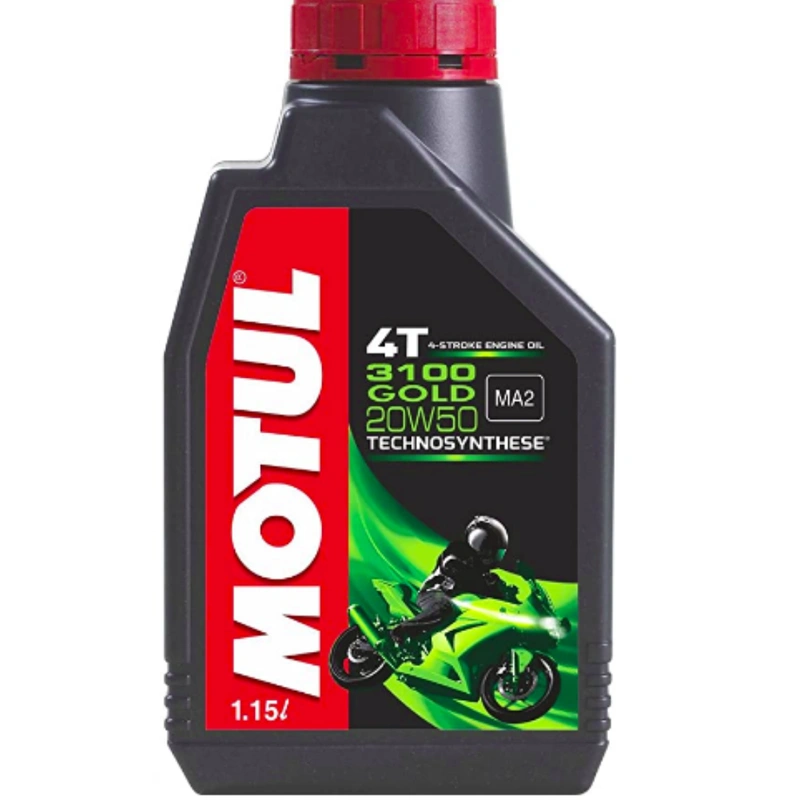
Rating & Reviews (4.3/5, 1087 reviews)
User reviews: "Less vibration, gear shifting awesome, engine sound more smother like butter."
Motul 7100 4T 20W-50 API SN Fully Synthetic Engine Oil for Bikes
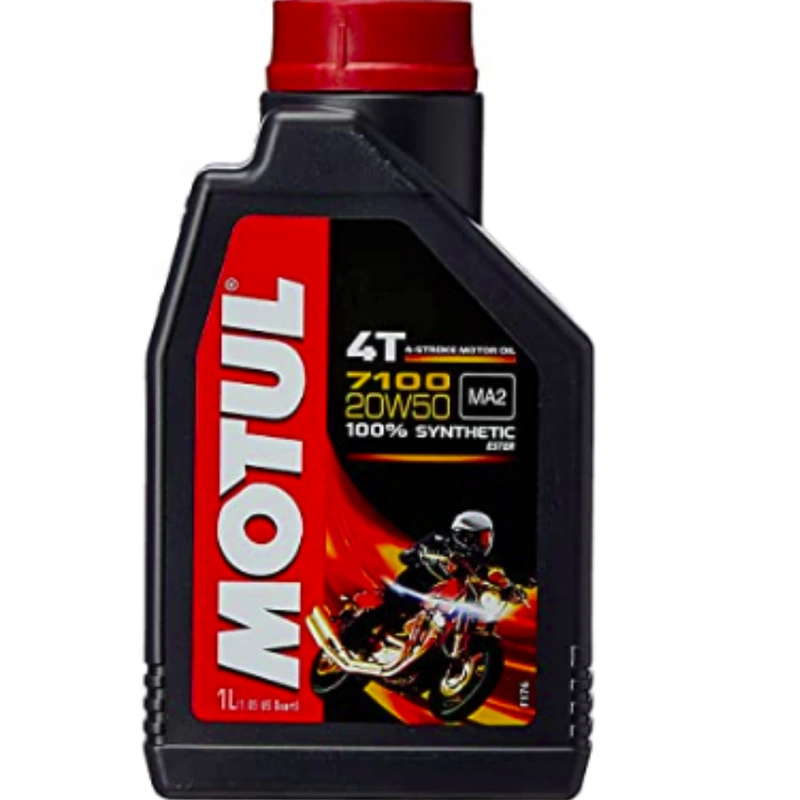
Rating & Reviews (4.5/5, 2315 ratings)
User reviews: "Bikers... This Motul 7100 with viscosity 20W50 is best engine oil for bike above 150cc. I've been using it since February. I replaced this engine oil after running more than 7000 kilometres and the Mechanic from Bajaj service centre said you can still use this engine oil."
Motul 7100 4T 10W50 API SN Fully Synthetic Ester Petrol Engine Oil for Bikes
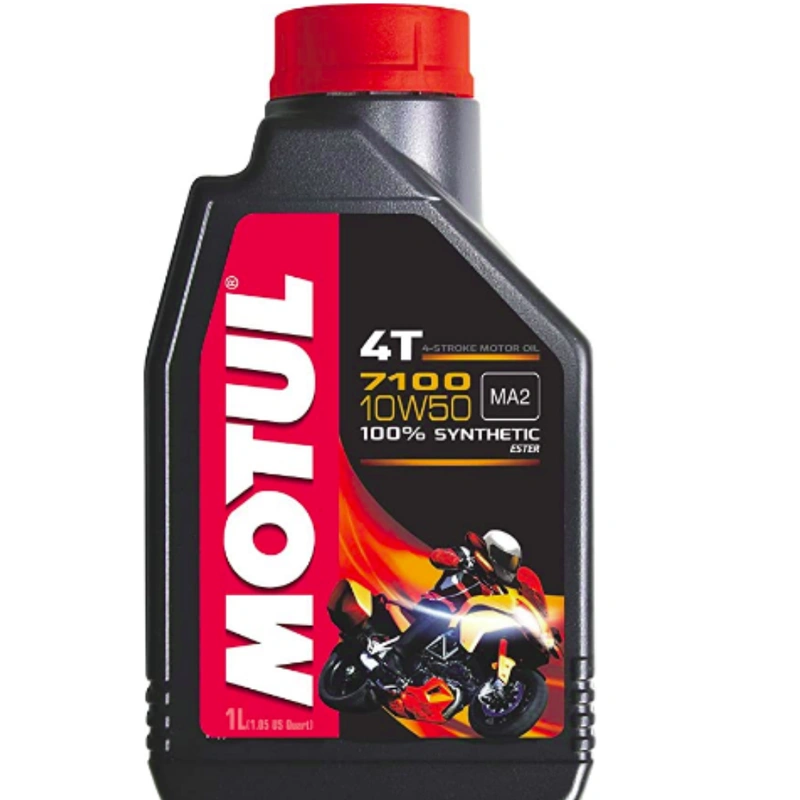 Rating & Reviews (4.5/5, 790 ratings)
Rating & Reviews (4.5/5, 790 ratings)
User reviews: "Dominar 400 owners... go for it!! Works like magic..."
Liqui Moly Performance Pack for Bajaj Pulsar RS 200
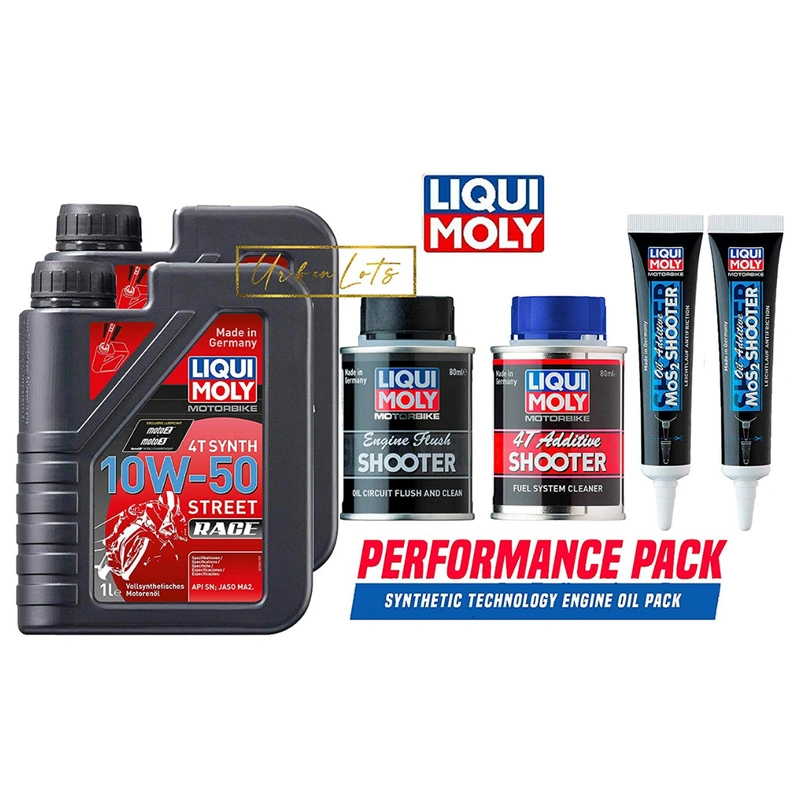 Rating & Reviews (5/5, 1 rating)
Rating & Reviews (5/5, 1 rating)
User reviews: "must buy ..."
FAQs
What is the recommended viscosity of the best engine oil for a 100cc bike?
Typically, 10W-30 or 10W-40 viscosity is recommended for 100cc bikes, but always check the manufacturer's guidelines.
How often should I change the engine oil in a 150cc bike?
It generally varies between 3,000 to 5,000 km, but always refer to the bike's manual for the exact interval.
How does engine oil for a 4-stroke motorcycle differ from 2-stroke oil?
4-stroke oil is designed for engines with separate oil and fuel compartments, offering lubrication for engine parts, while 2-stroke oil mixes with fuel to lubricate moving parts as the mixture circulates.
What is the best engine oil for a 150cc bike in Kenya?
Popular choices include Castrol, Shell, and Total, which are known for their high-quality lubricants suitable for varying Kenyan climate conditions.
What makes synthetic engine oil better for bikes compared to conventional oil?
Synthetic oil has better chemical stability, lower volatility, and can withstand higher temperatures, providing enhanced engine protection and performance.





